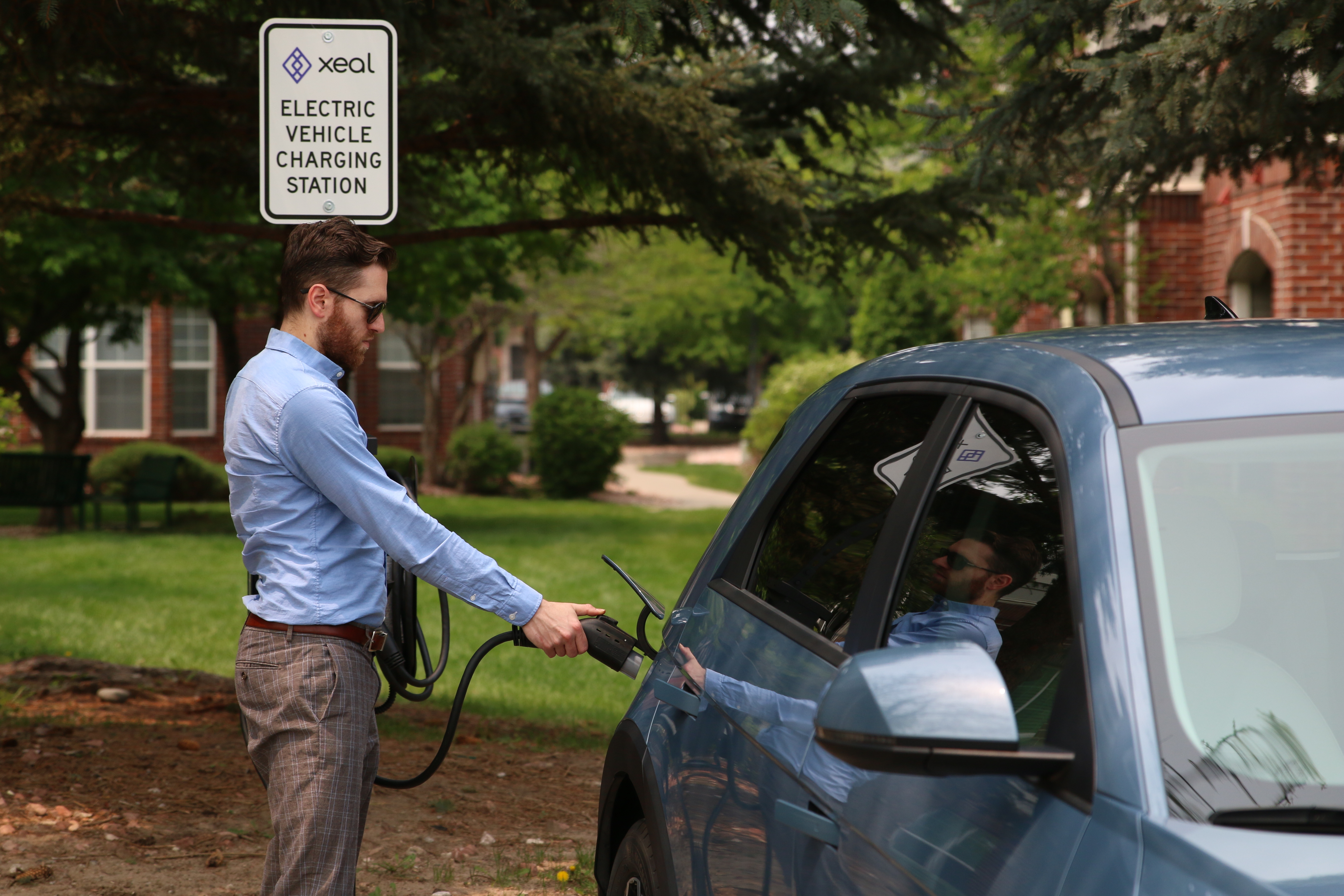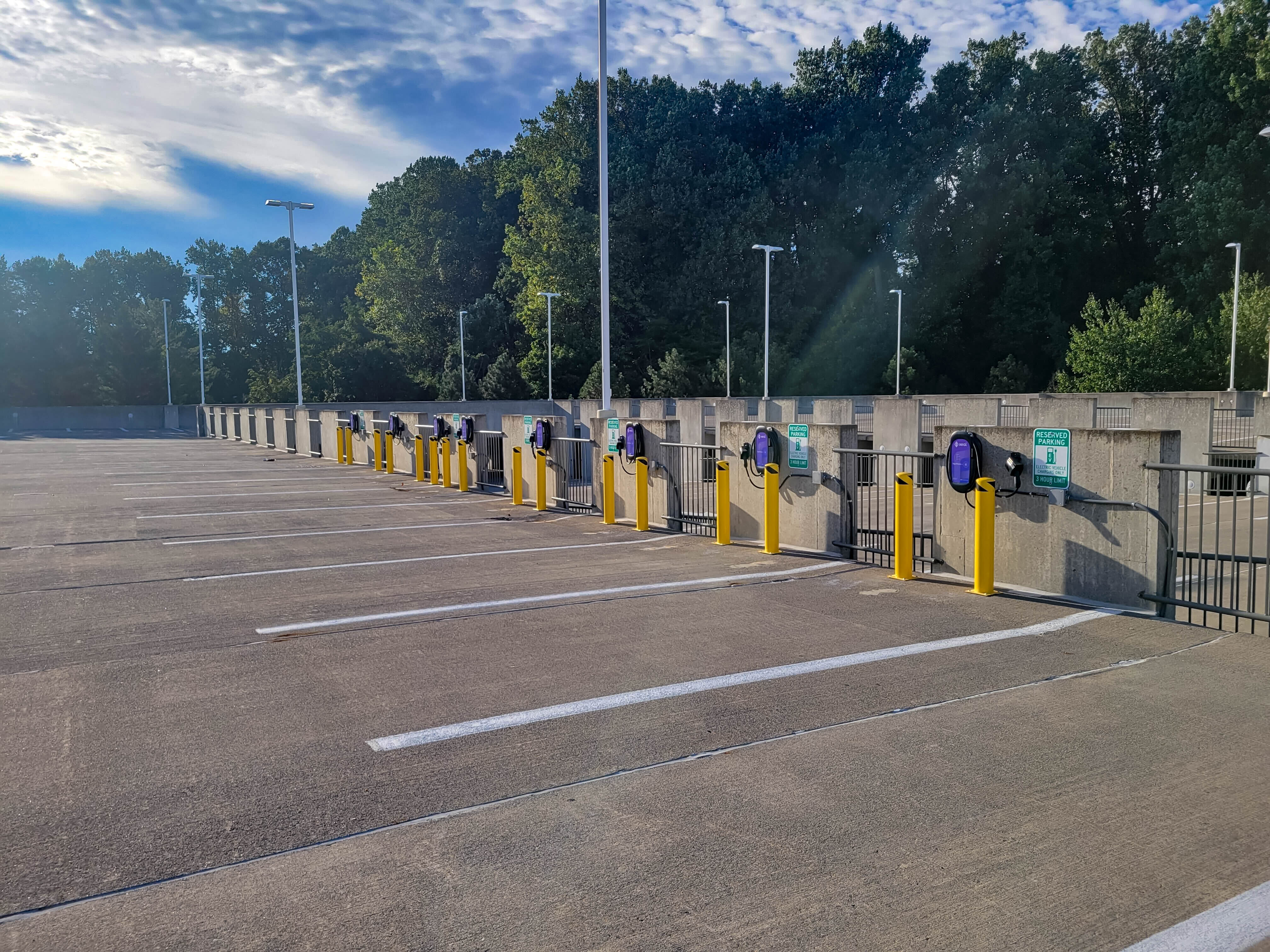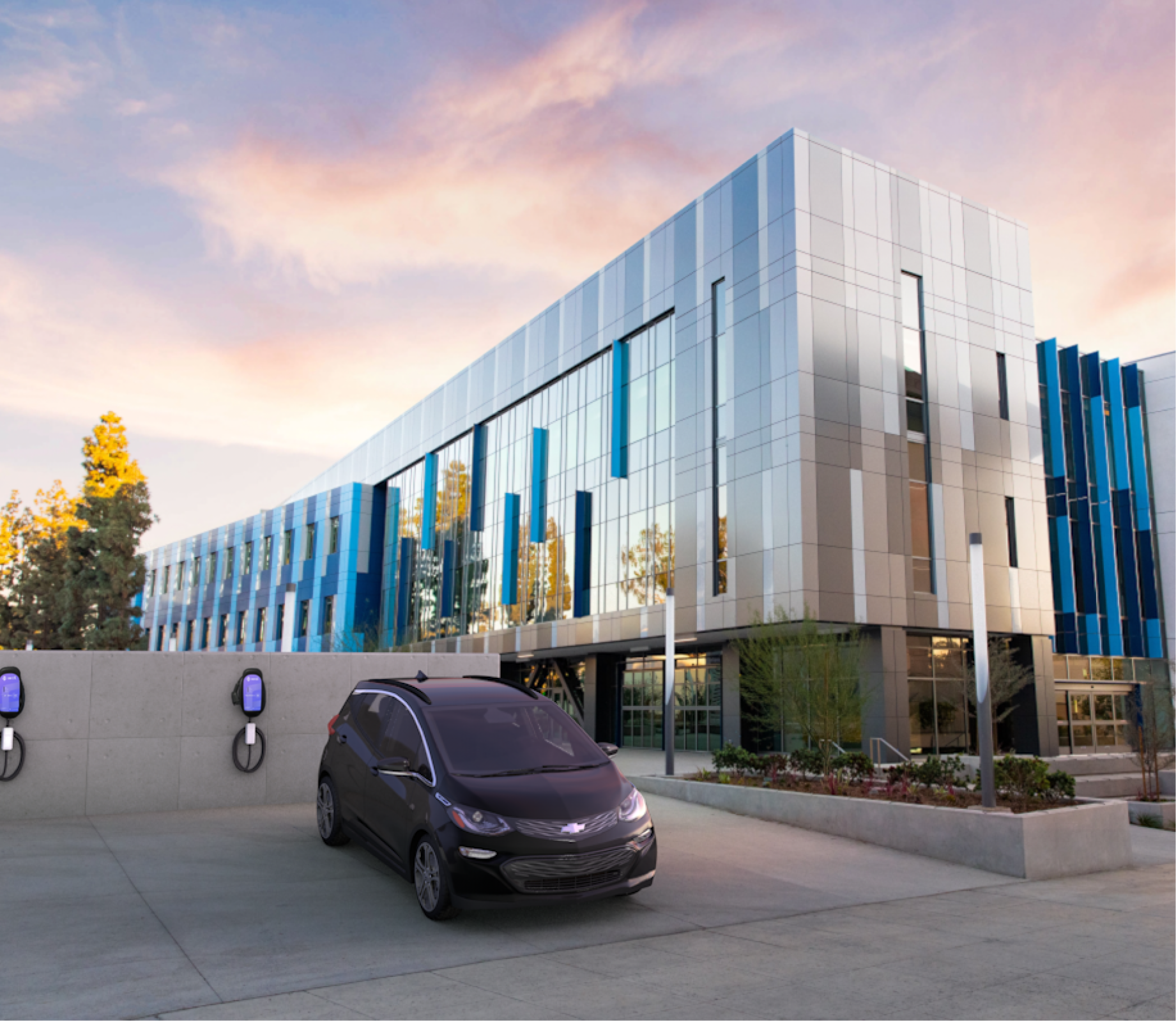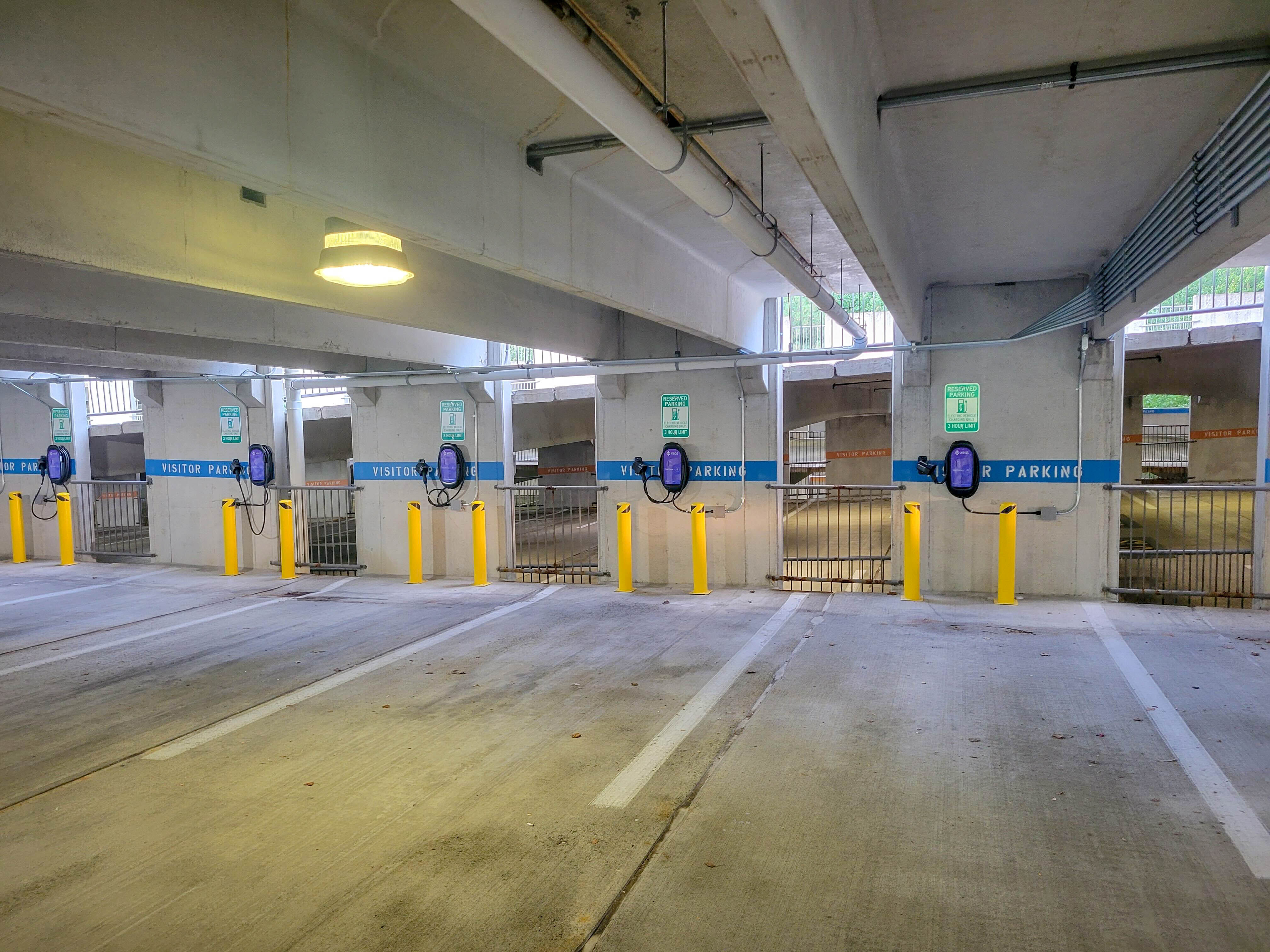Once the province of futurists and Silicon Valley hobbyists, electric vehicles are now a part of everyday life, and with more than half of all Americans planning to buy an EV as their next vehicle, chargers are poised to become the next gas stations. Real estate owners now have a unique opportunity to install reliable, accessible charging infrastructure on their properties and begin to not only attract new tenants and retain existing ones but also open up a new revenue source. With this in mind, The Real Deal sat down with Xeal Co-Founder and CTO Nikhil Bharadwaj and Xeal CRO Eric Roseman to learn how their company is helping property owners bring this crucial infrastructure into the world.
Transforming the EV Charging Space
Bharadwaj and Zander Isaacson founded Xeal in 2019 with one simple mission: to help “solve climate change without bothering people.” The first part of their solution was a patented technology that addressed charger reliability, one of the main pain points present in existing EV charging solutions. “Electric vehicle chargers are plagued with issues around internet reliance,” explains Roseman. Traditional chargers require a constant internet connection to function, meaning that any interruption in something like a Wi-Fi connection can take a charger offline.
Xeal’s solution was to create what Bharadwaj calls the “self-reliant protocol,” a system that, in essence, allows Xeal’s units to charge customers’ vehicles without the need for a central network connection. Thanks to an elegant token and ledger system, the chargers can be activated via a user’s smartphone app and dispense power in seconds, all without the threat of interruption. “This allows our chargers to be placed anywhere,” says Bharadwaj, “and enter markets that they were not entering before.” Despite not needing internet or a central network connection, Xeal’s self-reliant protocol still enables full smart functionality such as metered payments, access control, dashboard monitoring, energy management, and even over-the-air updates.
Whereas previously, charger placement was often focused alongside highways and in hourly parking lots, Xeal aims to bring charging solutions to the places where people work and sleep. The EV charging industry has long been one based around the convenience of the charger owner, with chargers showing up in the places that are the easiest and cheapest to install, not where they will actually be used. By freeing the charger from the need for a reliable internet connection, Xeal has changed the game, allowing property owners to install chargers where their tenants are most likely to leave their vehicles for long periods of time.
With the technological solution in place, Xeal began to grow quickly, as more property owners saw the benefits and signed on. “We’re the fastest growing electric vehicle charging company in the space right now,” says Roseman. “In just three years, we’ve amassed portfolio-wide relationships with over one hundred of the largest real estate companies in the US.” Xeal has worked with firms including Harrison Street, UBS, and NRP Group, as well as “about a third of the NMHC Top 50.” These numbers are evidence not only of the strength of Xeal’s tech but also the efficiency of its implementation team, with as early as two weeks between “the time you get in touch to the time that your first residents are happily charging their car.”
Xeal’s Straightforward Path to Profit
The process is straightforward. Xeal employs regional specialists who are experts in their area and will assess each location’s needs, determining not only how many chargers should be installed but also what local processes need to be followed to ensure quick and successful implementation. “We provide full white glove service from start to finish,” says Roseman, “from permitting to commissioning.” The chargers run off of 240-volt power, allowing a direct tie-in to the vast majority of existing electrical infrastructure.
Xeal’s EV experts design each project with an eye toward future-proofing, which is a major part of the value proposition for property owners when it comes to the ROI from chargers. “ROI comes in two flavors,” explains Roseman. “The first flavor is attracting new tenants.” According to Xeal’s numbers, 84% of renters who do not currently own an EV are more likely to consider a property that has chargers, while those who already drive an electric vehicle will look elsewhere if a property doesn’t offer them. This is a huge percentage of the rental market, making chargers a necessity for residential property owners looking to compete.
The second aspect of Xeal’s ROI proposition is, of course, the money that comes from the chargers themselves. “These are profitable vending machines that deliver electrons to charge cars and create a cash flow stream over time as more people charge their cars,” says Roseman. One of Xeal’s case studies involved installing 7 chargers in an above-ground garage at a 425-unit multifamily property in Dallas. With just 22 regular EV drivers so far, the property owners have already realized $12,000 in revenue after just a year of operation, with a projected revenue of over $167,000 over the next 5 years. Another one of Xeal’s properties generated $6,400 in the first quarter of their second year, with a projected revenue of $320K over the next 5 years. As Roseman says, “That’s more money to the property on a constant basis.” Moreover, Xeal offers flexible financing plans for property owners aimed at getting chargers installed and generating revenue as soon as possible. “We help solve for capital constraints,” explains Roseman.
Charging Into the Future of Transportation
But there’s more to EV chargers than a simple financial decision. As Bharadwaj reminds us, while chargers attract and retain residents, they also help property owners fulfill their role as leaders in their community. “We’re focused on the triple bottom line: people, planet, and profit,” says Bharadwaj. Xeal offers property managers a dashboard that shows them not only “data analytics around their charging sessions and the drivers onboarded,” but also the electric miles their chargers have provided and how many carbon emissions have been avoided as a result.
Electric vehicles are here to stay, and Xeal offers property owners an opportunity to get in on the ground floor of the next wave of transportation infrastructure. Thanks to Xeal, installing EV chargers on your property is not only the right thing to do, it’s good business.






